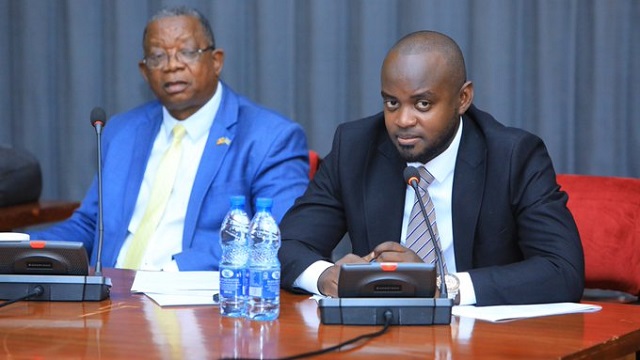
Kampala, Uganda | THE INDEPENDENT | Conservationists have opposed the planned lion breeding program by the Uganda Wildlife Education Centre (UWEC), confined conditions, as opposed to a free environment.
World Animal Protection, a global animal welfare charity based in the UK, says instead, that the government agencies should prioritise protection of the lions “in their natural habitats rather than breeding them in captivity.”
Earlier this week, the Parliamentary Committee on Trade and Tourism justified the request by UWEC for 10 billion shillings to set up lion breeding facilities in three selected National Game Parks.
The conservationists are concerned that the plan, if implemented would deny the animals freedom, increase their anxiety, and lead to poor quality.
This is after MP Mwine Mpaka, the Committee Chairperson indicated to the Budget Committee that they would be confined in places within the parks before being released in controlled numbers.
“It is basically like a cage within a national park, so they will be monitored and treated to create a conducive environment for them to breed and survive to increase the population because we are losing several lions every year due to the human-wildlife conflict, electric fences, poisoning. So we need to bring these lions back to our game parks,” he said.
The charity acknowledges the importance of increasing the country’s lion populations and preserving biodiversity but says that cage lion breeding has “failed terribly” in other African countries like South Africa which are said to be currently phasing it out.
The organization emphasizes that lions are wild animals that belong in their natural habitats, cautioning that breeding and hand-feeding them in cages leads to potential stress, health issues, and a compromised quality of life for the animals.
There is also fear that this system could have negative impacts like increasing conflicts between lions and humans, poaching, and trafficking, leading to an irreversible imbalance in the ecosystem.
Edith Kabesiime, a campaign manager at World Animal Protection urges UWEC to adopt conservation practices that prioritize the welfare of animals and their preservation in their natural habitat, which is the wild.
“The government should redirect its efforts and resources towards comprehensive wildlife protection strategies that address the root causes of the decline in lion populations, such as habitat loss, limited prey, poaching, and human-wildlife conflicts,” she says.
She adds that breeding lions in captivity do not address the core issues threatening “these majestic beings”.
“The government must invest in sustainable wildlife protection initiatives that prioritize the protection of lions in their natural habitats to ensure lions live and breed naturally in the wild, rather than pursuing potentially harmful cage breeding programs that may not be sustainable in the long run,” she says.

Mwine Mpaka said that the Government was prompted to come up with this strategy after recording a drop in lion population, from 460 in 2022 to about 310.
It is expected that if Parliament grants this request, on maturity, the project could start releasing 15 lions into the wild per year.
The organization has invited the government for a constructive dialogue to explore alternative and appropriate approaches aligned with international best practices and ethical standards.
It says it is committed to “working collaboratively with governments, organizations, and communities across Africa to find humane and effective solutions for wildlife protection.”
Currently, there are 15 lions at UWEC which we have been breeding, but the lion population in the country has gone down because of human-wildlife conflict,” said Mwine.
“We now have 15 lions at UWEC which we have been breeding, but the lion population in the country has gone down because of human-wildlife conflict. We are now going to start breeding them in the wild in Queen Elizabeth, Kidepo, and Murchison Falls National Parks,” Mwine said.
*******
URN
 The Independent Uganda: You get the Truth we Pay the Price
The Independent Uganda: You get the Truth we Pay the Price





